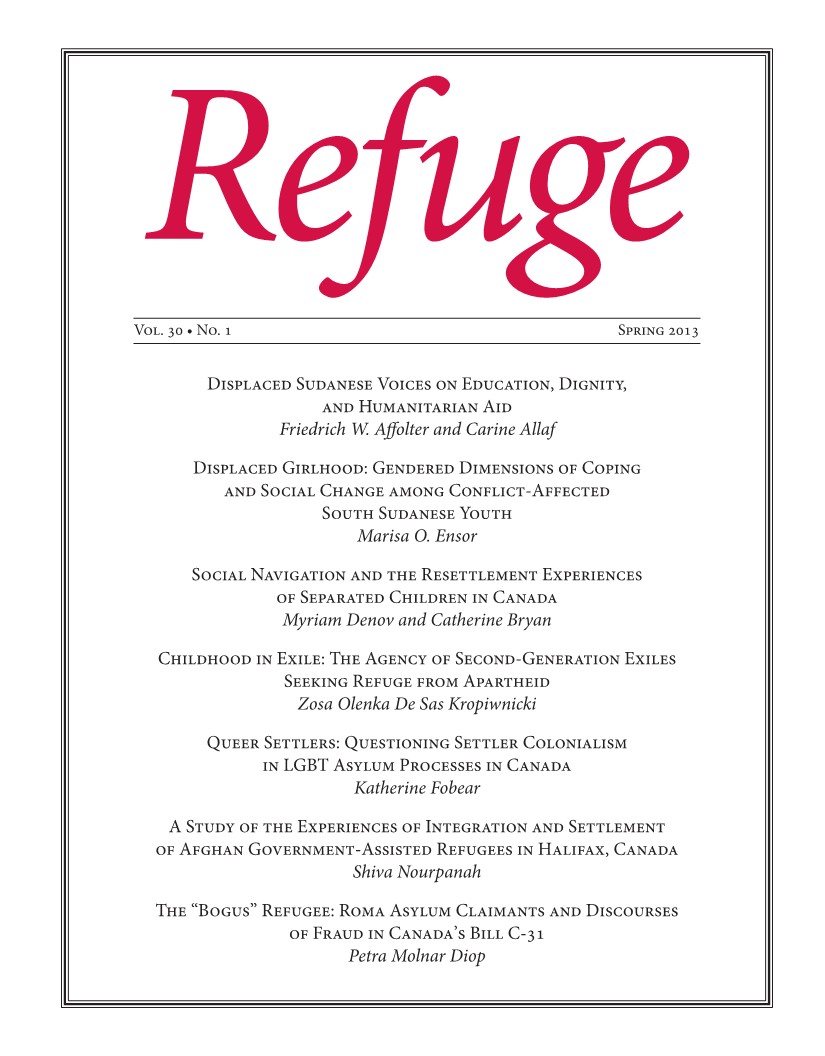Childhood in Exile: The Agency of Second-Generation Exiles Seeking Refuge from Apartheid
DOI:
https://doi.org/10.25071/1920-7336.38601Keywords:
South Africa, apartheid, second-generation exiles, children, bounded agency, power, life history approachAbstract
This paper is based on a retrospective study of children who were born in exile and/or spent their formative years in exile during apartheid. It is based on 21 in-depth interviews with men and women who spent their childhoods in an average of three different countries in North America, Western Europe, the Nordic region, Eastern Europe, West Africa, and East Africa as second-generation exiles during apartheid. This article will argue that the interplay of structure and agency in the lives of second-generation exiles in the process of migration and in the transitory spaces that they occupied should be explored. Second-generation exile children devised a range of strategies in order to challenge or cope with constantly shifting contexts characterized by inequalities, social exclusion, violence, and political uncertainty.
Metrics
Downloads
Published
How to Cite
Issue
Section
License
Copyright (c) 2014 Zosa Olenka De Sas Kropiwnicki

This work is licensed under a Creative Commons Attribution-NonCommercial 4.0 International License.
Refuge authors retain the copyright over their work, and license it to the general public under the Creative Commons Attribution-Non Commercial License International (CC BY-NC 4.0). This license allows for non-commercial use, reproduction and adaption of the material in any medium or format, with proper attribution. For general information on Creative Commons licences, visit the Creative Commons site. For the CC BY-NC 4.0 license, review the human readable summary.







